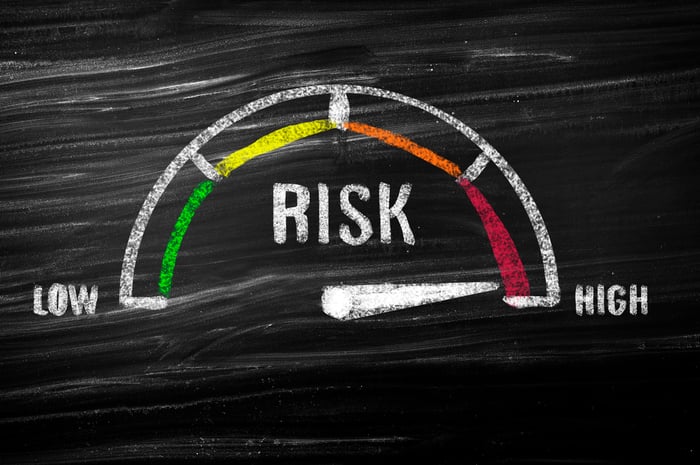The name Carl Icahn still has material cachet on Wall Street, though some of his most public investment battles happened decades ago. Icahn Enterprises (IEP -0.42%) is Carl Icahn's publicly traded investment vehicle. It has a huge 23% distribution yield. Don't get too caught up in that yield, however. The real story is much bigger and more complicated. Here's why investing alongside Carl Icahn could make you a millionaire and why it might not.
Investing with Carl Icahan
Icahn Enterprises isn't trying to hide anything. It's very clear in the company's most recent investor presentation that "IEP is majority owned and controlled by Carl Icahn." It even goes so far as to explain that, "As of March 31, 2024, Carl Icahn and his affiliates owned approximately 85% of IEP's outstanding depositary units."

Image source: Getty Images.
With Carl Icahn in control of 85% of the Icahn Enterprises, any other unitholder is just going along for the ride. If you buy the stock you are, effectively, betting that Carl Icahn's investment ability will result in strong financial performance. He has a solid history, which is why his name is so iconic on Wall Street, but past performance doesn't guarantee future returns. Every investor makes mistakes.
That said, after a painful price decline over the past year Icahn Enterprises actually trails the total returns, which assumes dividend reinvestment, of the S&P 500 Index over the longer term. That drop has coincided with a public spat with a short seller that has garnered a lot of negative attention. Of note, the short seller highlights that the main attractions of Icahn Enterprises are a high yield and the chance to invest alongside Carl Icahn. It goes on to note that there is limited institutional ownership of Icahn Enterprises, with most investors coming from the mom and pop set.
IEP Total Return Level data by YCharts
That should probably lead most investors to question whether or not they should invest alongside Carl Icahn if institutional investors aren't willing to do so. The answer might be yes for you, but given the swift drop in the stock price it seems like a lot of investors decided that maybe the story here wasn't what they thought it was when they bought the units.
Icahn Enterprises is a complex entity
The thing is, Carl Icahn isn't like other investors. He's willing to take on big fights and big risks, with Icahn Enterprises describing the investment approach as: "IEP seeks undervalued companies and often becomes 'actively' involved in the targeted companies." The list of actions that Icahn Enterprises is willing to take include buying whole companies, fighting with boards of directors, and financial restructurings, among other things.
That's very different from, say, Warren Buffett, who likes to buy a good business when it appears reasonably priced and then let the business' management team continue to run it. Buffett only tends to get involved if there's a good reason, like weak performance. Carl Icahn seems to buy companies where there is already a good reason to get involved. There's a material difference in the risk being taken on.
So while Buffett's Berkshire Hathaway is a complex entity, the complexity at Icahn Enterprises is amplified by the specific risks and actions that Icahn is taking on at the business level. But it helps to lay out the businesses here, with Icahn Enterprises owning real estate, textiles, pharmaceuticals, food packaging, auto repair, and energy, along with equity investments in other public entities. It is absolutely possible that this mix, along with Icahn's aggressive involvement, could help turn Icahn Enterprises unitholders into millionaires. And it is also possible that Icahn Enterprises ends up spinning its wheels as it tries to turn around a bunch of troubled businesses.
Paying up for risk
Carl Icahn has achieved great investment success in his lifetime and investing alongside him sounds like a great idea. But it comes with a great deal of risk, given his aggressive investment approach. But the biggest problem here is another of the short seller's highlights, the divide between the net asset value of Icahn Enterprises and the market price it is being afforded.
At the end of the first quarter of fiscal 2024 Icahn Enterprises estimated its net asset value at roughly $5 billion. The market cap of the partnership's public units is around $8 billion, meaning that investors are paying way more to own it than what Icahn Enterprises itself says it is worth. Unless you believe that Icahn's involvement in Icahn Enterprises adds at least $3 billion in market value, there's a good chance that Icahn's investment vehicle could let you down even with that big dividend. Most investors will probably be better off with other options, perhaps even a roughly similar, but less risky, investment like Berkshire Hathaway.






